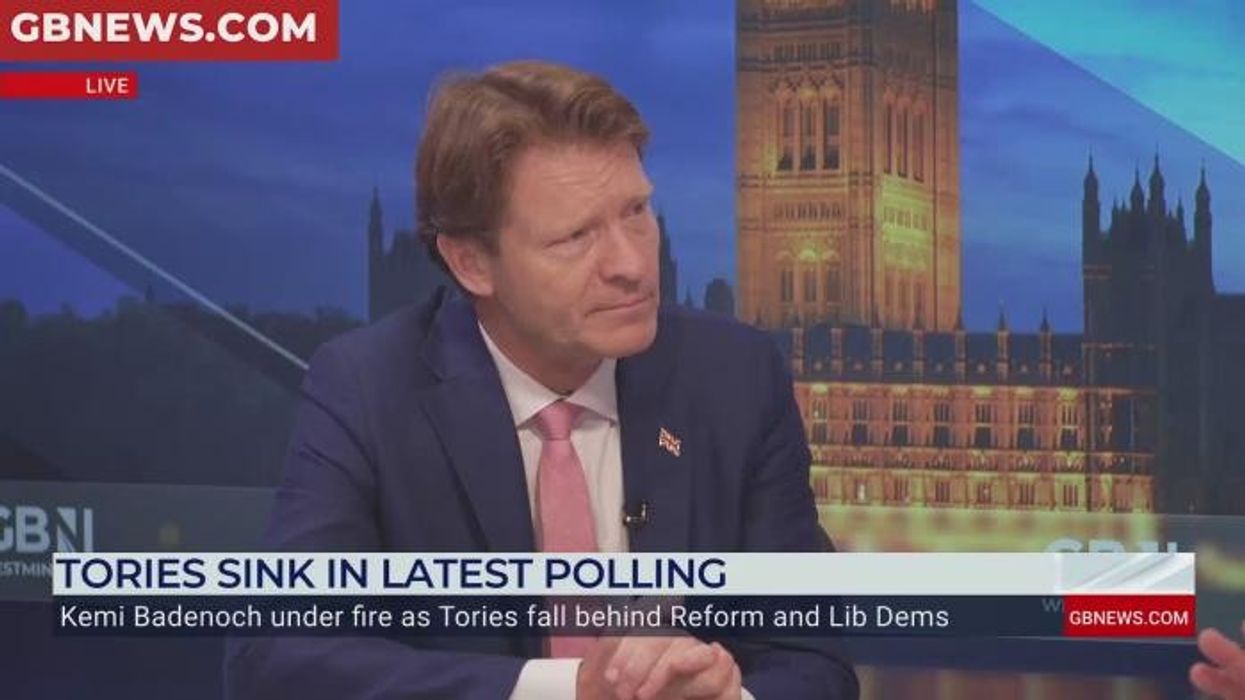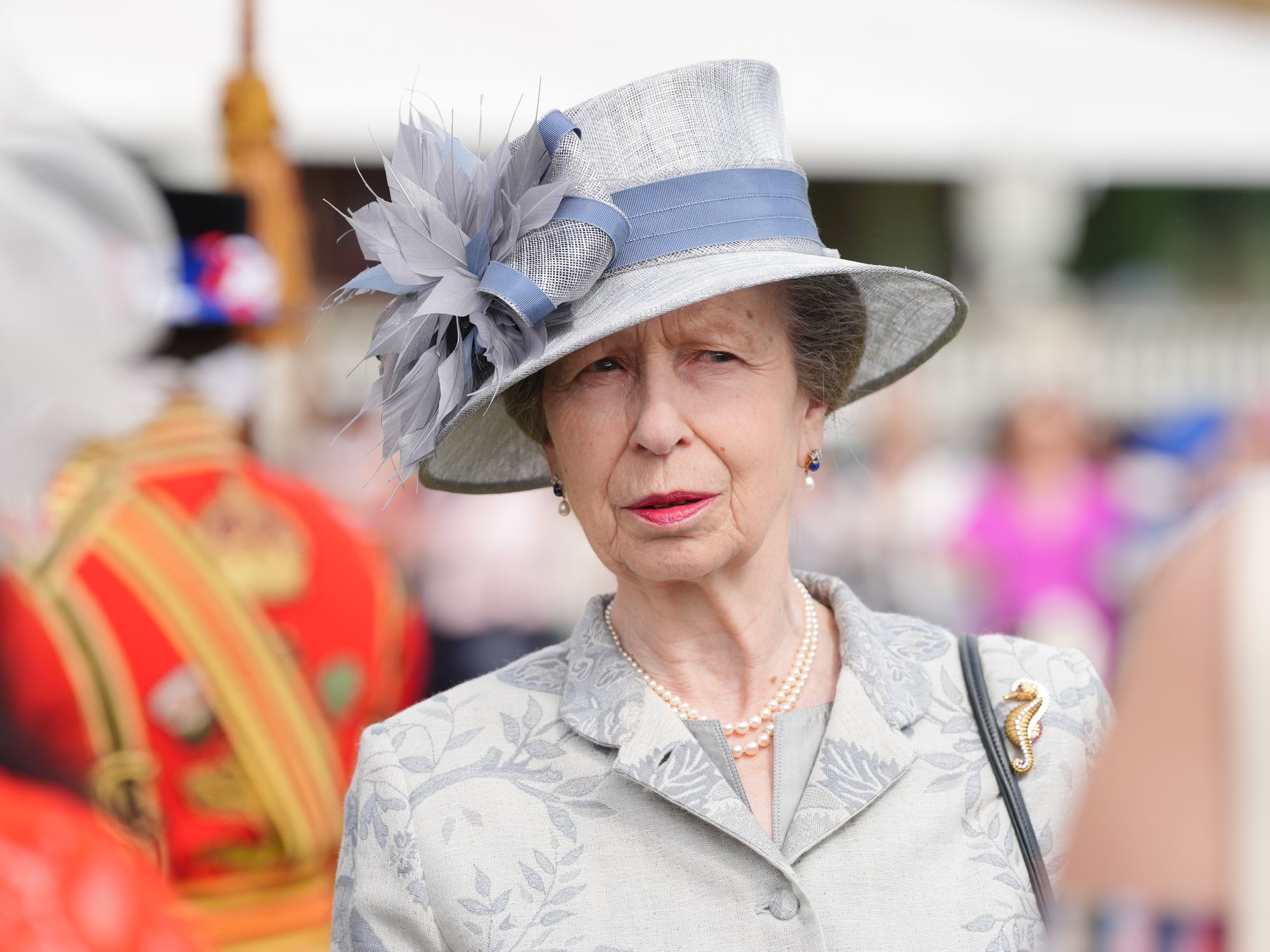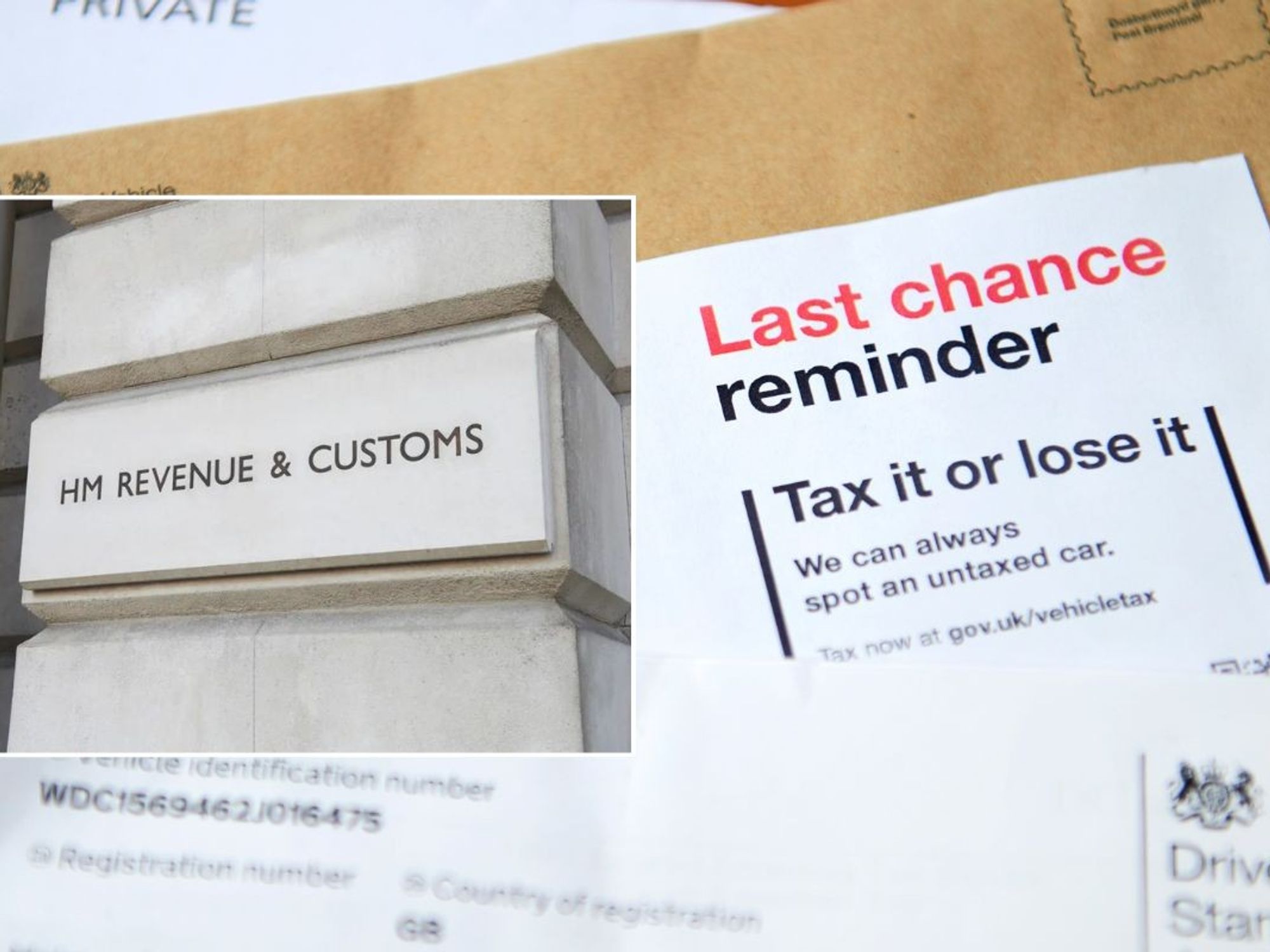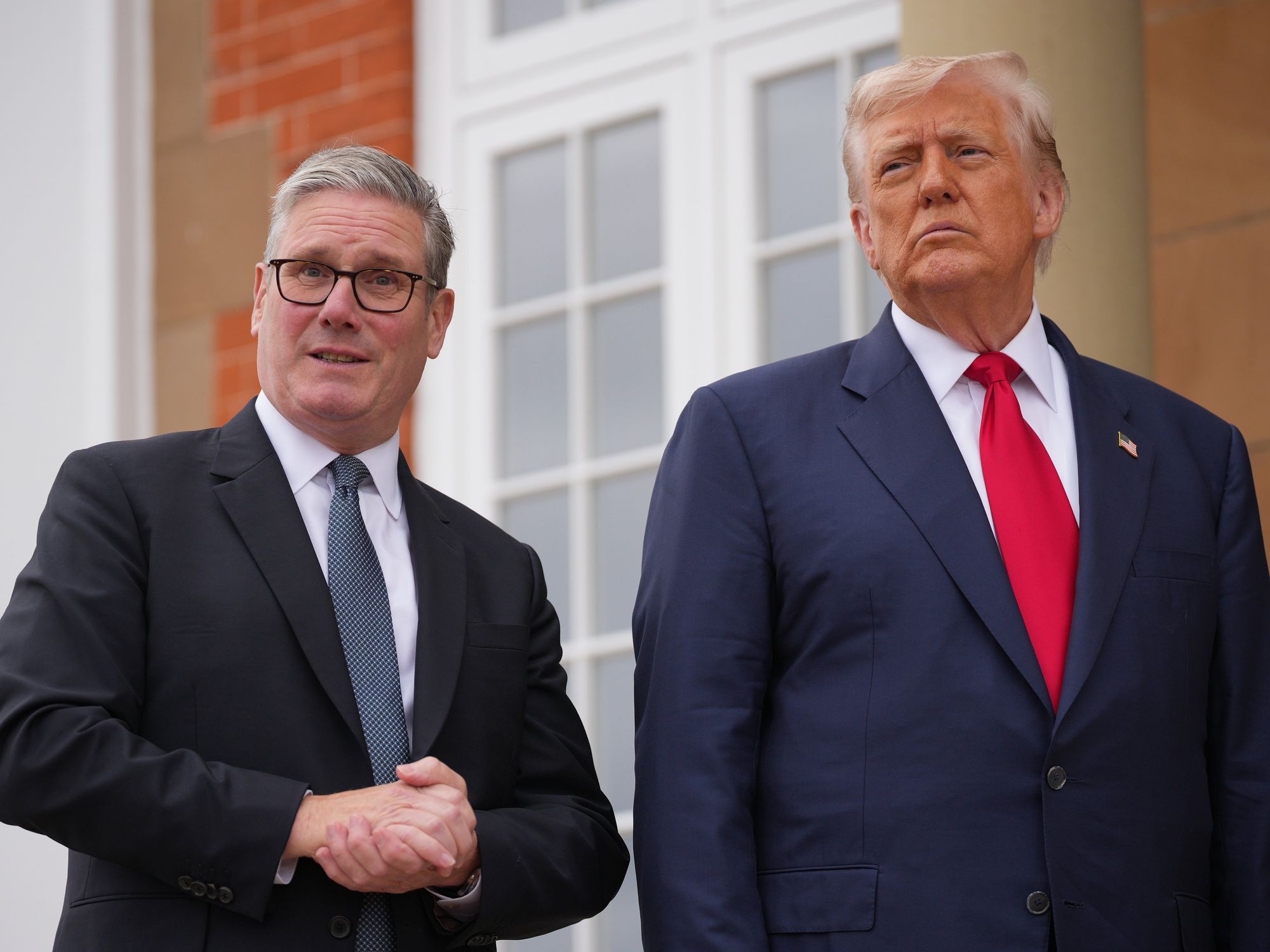Could Keir Starmer be forced to resign? Inside the data that should have Labour hitting the panic button

Nigel Farage appears to have outflanked Sir Keir Starmer on the two-child benefit cap and Winter Fuel Payments, survey data suggests. But what does this mean for Starmer's premiership? We investigate
Don't Miss
Most Read
Trending on GB News
Sir Keir Starmer is facing an uphill struggle to overcome Nigel Farage's seven-point lead in the opinion polls as voters no longer trust the Prime Minister on a key set of policy areas, a damning set of surveys suggest.
Starmer, who secured a 1997-style landslide victory in the 2024 General Election, now finds himself leading a Labour Party as unpopular as it was under Gordon Brown during the financial crash and in Jeremy Corbyn's twilight days as Leader of the Opposition.
Labour's collapse in support left MPs reeling after Reform snatched Runcorn & Helsby by six votes and won the Red Wall councils of Durham and Doncaster on May 1.
And there has been little to smile about for Labour MPs outside of Westminster, with growing fears of a Reform revolt in Wales and Scotland.
Despite the Prime Minister's struggles, Starmer told anxious Labour MPs: "We will take the fight to him."
But can Starmer really recover? GB News dissects the data to find out.

Sir Keir Starmer
|PA
Labour's support is crumbling ... and fast
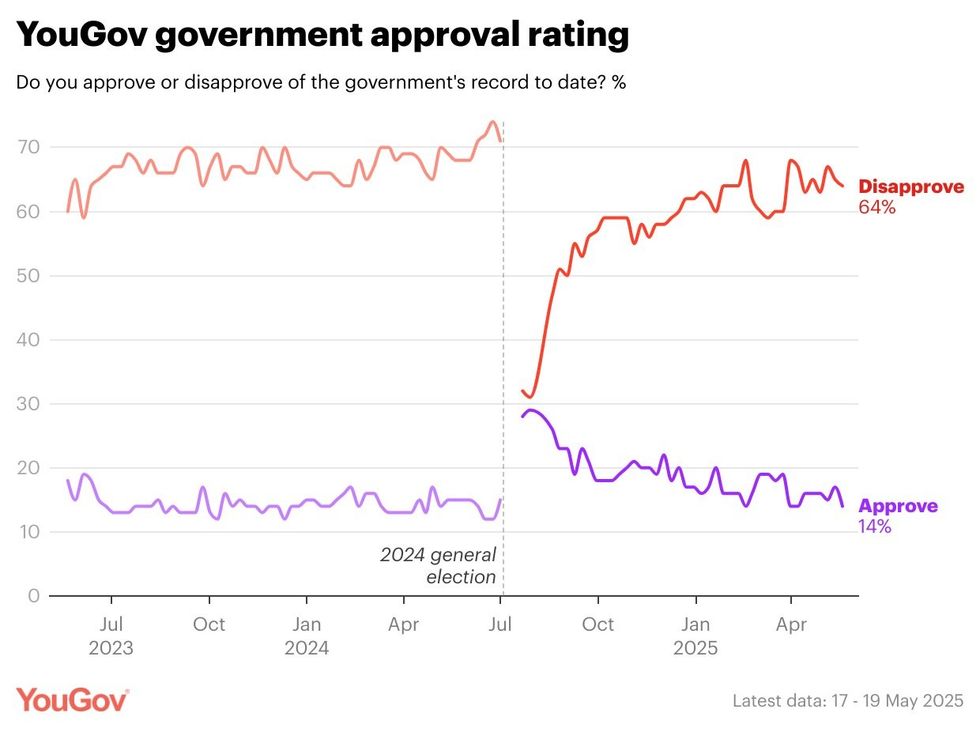
Labour's support dwindling fast, YouGov data shows
|YouGov
The slip in Labour's polling ratings since the 2024 General Election - which stands at 12.3 per cent - is the worst of any governing party since 1983.
Sir John Major's Tories previously held the unwanted electoral accolade after suffering a 7.7 per cent drop in the 10 months directly after the 1992 General Election.
However, after a series of controversial policy decisions, Labour finds itself in an even worse position.
It is not particularly unusual for governing parties to face a short-term backlash from voters, with mid-term blues handing the Tories major losses in Portsmouth South and Brecon & Radnor shortly after the 1983 General Election.
And it will also explain why Boris Johnson's 2021 by-election victory in Hartlepool is considered as all the more surprising.
Despite looking to claw back support lost since last July, Starmer can count himself lucky given the Tories have struggled to pounce on Labour's misfortunes.
Kemi Badenoch has gained just 1.5 per cent since the 2024 General Election, with Reform UK emerging as the main beneficiary of a collapse in support to both of Britain's major parties.
However, the first-past-the-post electoral system remains an untested beast for Reform UK.
Having failed to reward Ukip in 2015 and Reform UK in 2024, Farage will need to hope his campaign to create a Liberal Democrat-inspired base of activists can convert votes into seats in the House of Commons.
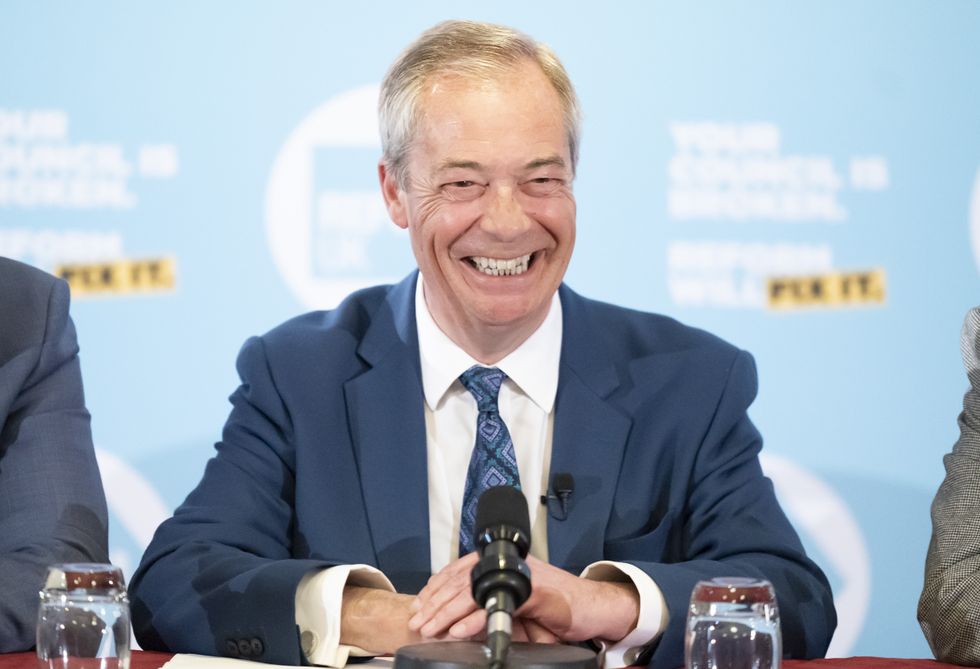
Reform UK leader Nigel Farage
|PA
Voters turn on Keir Starmer on key issues
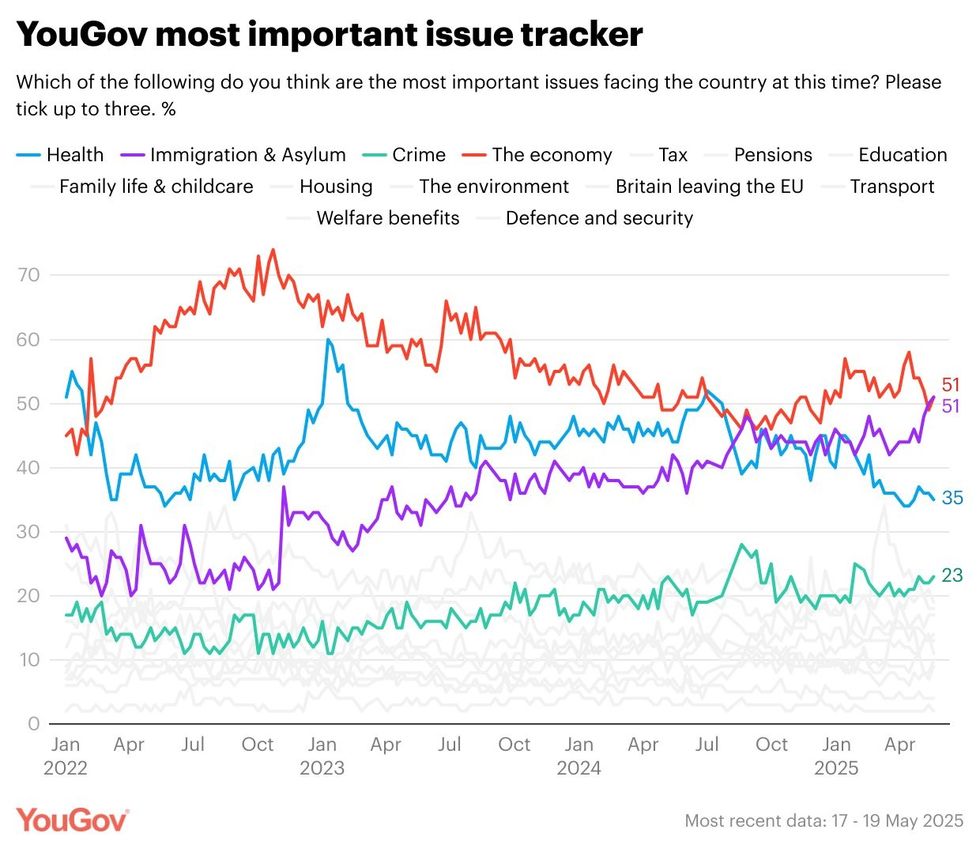
A recent set of YouGov polls has shown that Labour has seen its public backing on immigration, economy and health collapse.
The polling, which pits Labour against the Tories, now puts the Conservatives level on immigration, defence and law and order.
Meanwhile, the Tories have leapt ahead of Labour on the economy, with Starmer retaining his lead over Badenoch on housing and health.
Despite YouGov now including Reform UK as one of the major parties, other ended up topping the list on immigration, defence, economy, health, housing and law and order.
And the economy could pose a particular problem for Starmer.
Veteran political commentators have long clung onto the mantra from Bill Clinton's 1992 campaign: "It's the economy, stupid."
In July 2024, 29 per cent of people thought Labour would handle the economy best.
However, the proportion of voters now saying the same stands at just 16 per cent.
Who's to blame? Voters say Labour
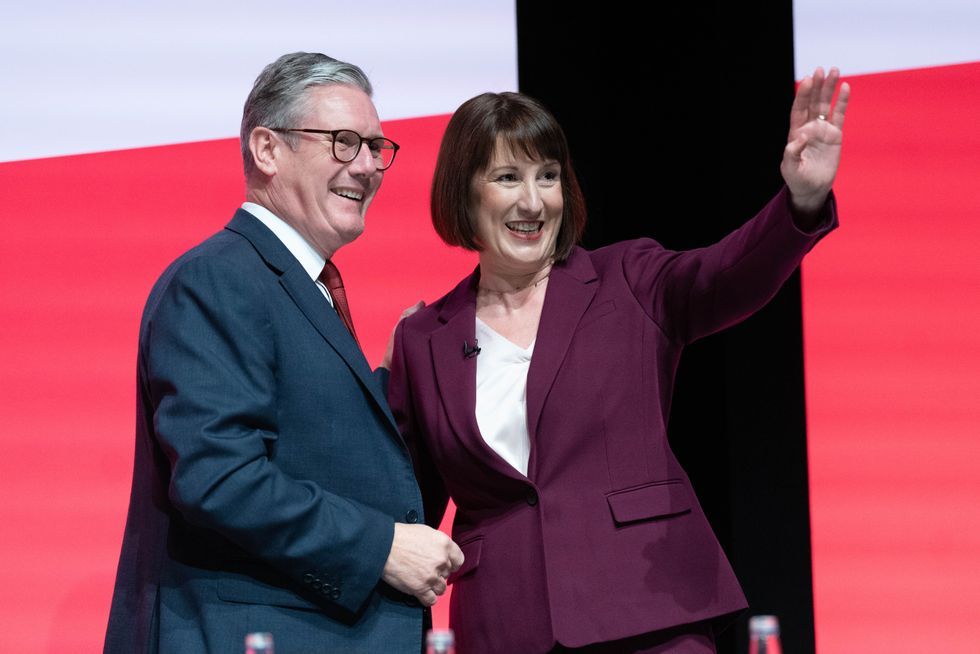 Keir Starmer and Rachel Reeves | PA
Keir Starmer and Rachel Reeves | PAAn Ipsos poll from April also painted a torrid picture for Sir Keir Starmer and his Chancellor Rachel Reeves.
After spending years taking aim at the Tories 14-years in power, Labour is now being told its to blame for Britain's struggling economy.
More than half of respondents - 56 per cent - blamed Starmer and Reeves, putting the duo ahead of Covid on 48 per cent and Russia's invasion of Ukraine on 44 per cent.
The previous Tory Government received the flak from 43 per cent of respondents, with Donald Trump and Brexit ending up level-pegging on 41 per cent.
However, with voters increasingly desperate for results, the devil will be in the detail.
Starmer's commitment to pursue growth, cut NHS waiting lists and fix Britain's "broken" borders could turn the tide in favour of Labour.
But whether the Prime Minister can pull off that enormous feat remains to be seen.
Despite rolling back on his plan to slash Winter Fuel Payments, it is also not yet clear if Starmer's decision to roll back on cutting the pensioner perk has been forgiven.
Labour's 2024 coalition splinters as Reform and Lib Dems hoover up disaffected voters
Ahead of the 2024 General Election, Rishi Sunak was warned the Tories could face electoral wipeout after Boris Johnson's 2019 coalition splintered between Reform UK, Labour and the Liberal Democrats.
While Conservative support has continued to splinter since the last General Election, Labour's 2024 backing has now fallen to just 58 per cent.
The Liberal Democrats have siphoned off 17 per cent of 2024 Labour voters, more than the nine per cent now backing Reform UK.
A similar margin - just over nine per cent - are also now leaning towards voting Green.
Despite the fragmentation on the left, a more recent YouGov poll indicates that Starmer could claw back support in a head-to-head match-up against Farage.
YouGov found that 44 per cent of voters believe Starmer would make a better Prime Minister than Farage, with just 29 per cent giving their backing to the Clacton MP.
In fact, Farage languished behind Liberal Democrat leader Sir Ed Davey by 14 per cent and ended up trailing Badenoch by four-points.
Will Keir Starmer actually resign?
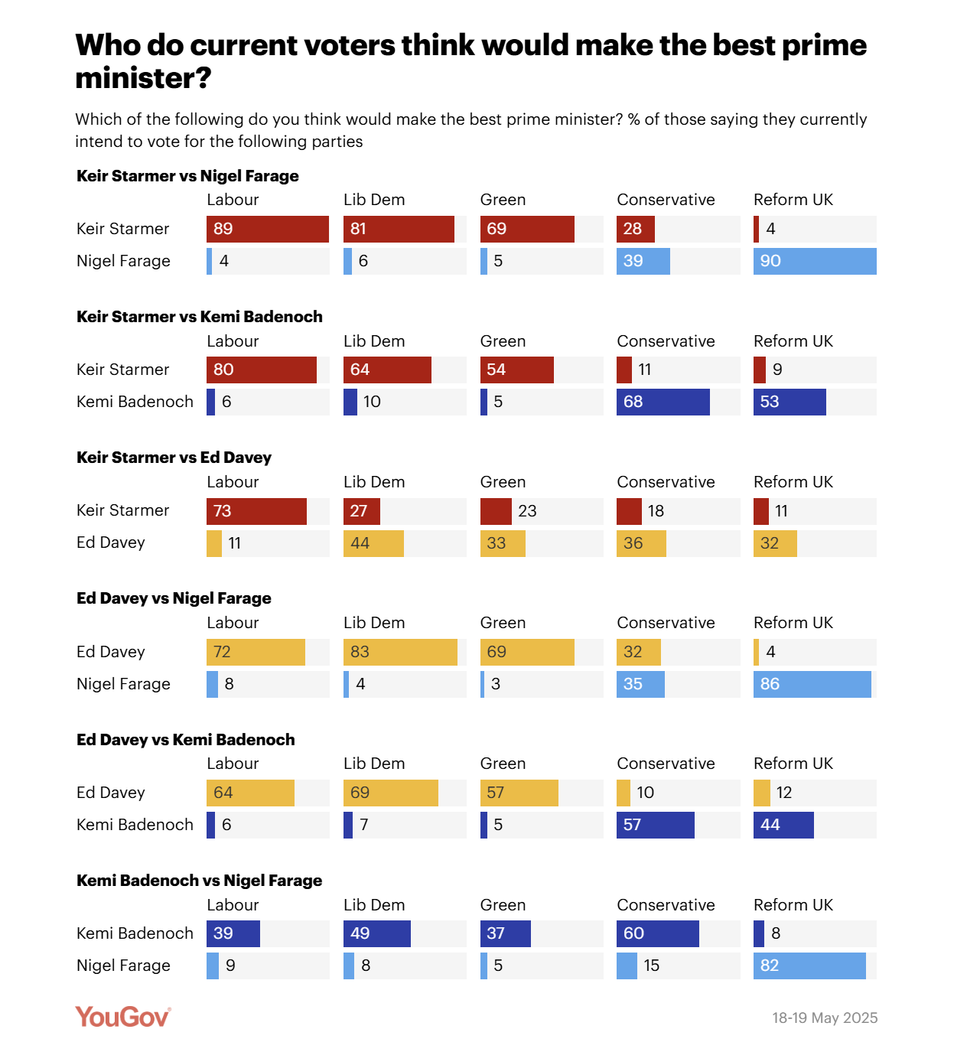
No. Well, probably not. Speaking ahead of his crunch UK-EU summit, Starmer vowed to contest the next General Election.
He said: "Of course I am going to stand at the next General Election. I have always said this is a decade of national renewal. I intend to lead.
"That is part of what we were arguing for at the last election - and of course, we have a lot more work to do and we have made huge progress."
And the Prime Minister is now committed to taking the "fight" to Farage.
Despite facing off against an increasingly disgruntled gaggle of Labour rebels, Starmer is also unlikely to face a challenge to his leadership.
Deputy Prime Minister Angela Rayner, who last week urged Rachel Reeves to raise £3billion in new tax rises, dismissed speculation that she was plotting to oust Starmer from No10.
She told Sky News: “I don’t want to be leader of the Labour Party.
“I’m very happy and honoured to be deputy Prime Minister of this country, and I’ve got a lot in my in-tray to prove that I can do the job that I’m doing and deliver on the milestones for the people of this country.”
Asked to say the word never, she replied: “Never.”
More From GB News


